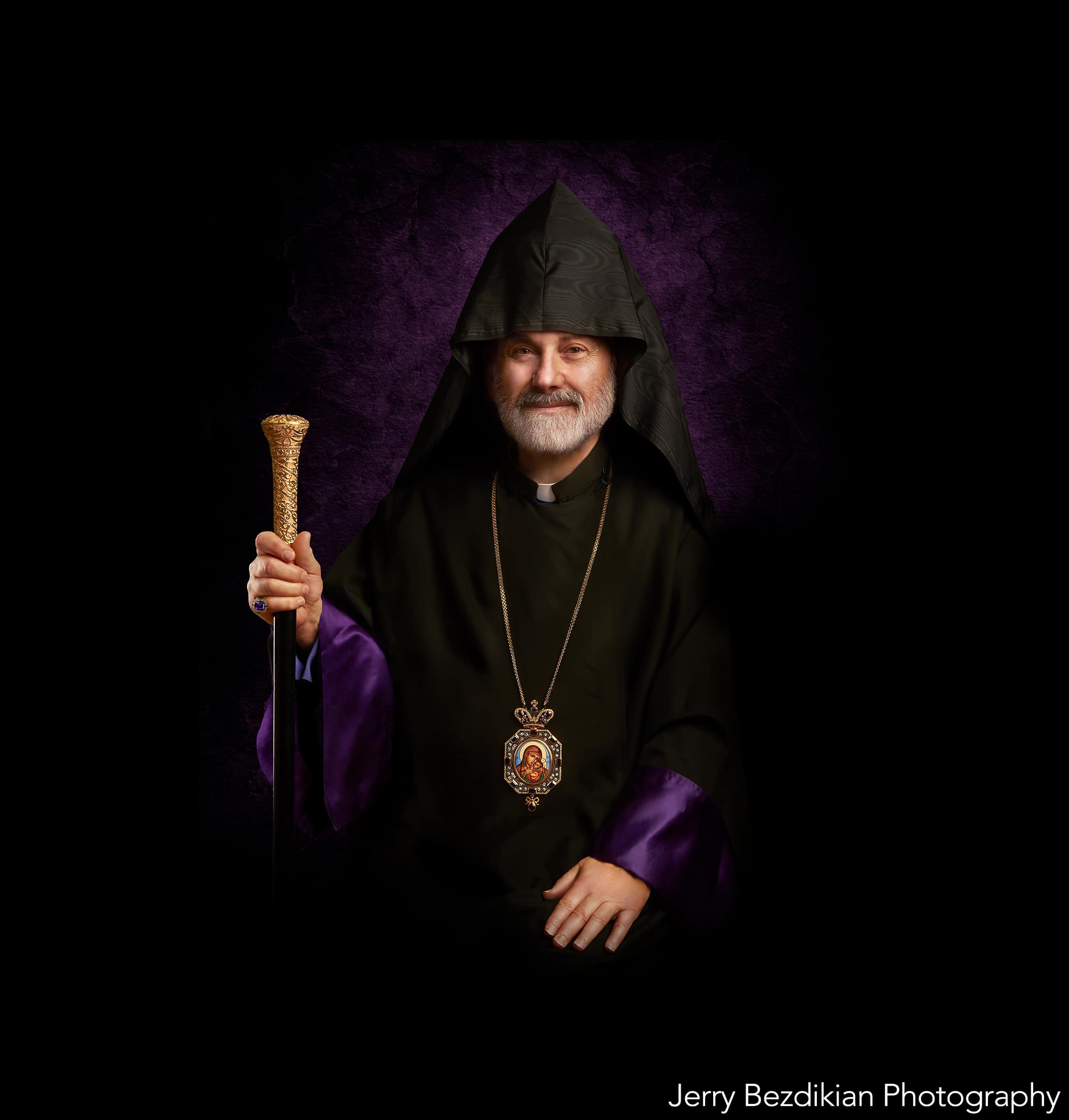The Prelate’s Sermon, Sunday, January 30
Today, on the third Sunday following the Nativity and Epiphany feast’s octave, the Gospel reading is from Saint John 6:39-47. Our Lord Jesus Christ reveals the will of God the Father, that “all those who believe in Him, Jesus, may have eternal life.” The religious authority confronts Him, asking how He could audaciously mislead the audience by referring to God as His Father and identify Himself as ‘the bread that came down from Heaven’ when they knew that He is Joseph’s and Mary’s son. Our Lord, without paying attention to their baseless arguments, repeats “no one can come to me unless drawn by the Father who sent me and I will raise that person up on the last day.” And He seals His statement by saying, “No one has seen the Father except the one who is from God, He has seen the Father.”
This passage is crucial to understand the relationship of God the Father and Son; hence we need the guidance of the Holy Spirit to follow the course of this dialogue. I would like to share the following thoughts.
- The will of God constitutes the core of this passage. In the Scriptures, one of the major themes is God’s will which is the return of the sinner to Him. Following the Fall, the Good Lord never has given up His fatherly wish, whether addressing the Chosen Nation or individuals to acknowledge their deplorable situation because of going astray: “Return to Him, from whom you have deeply defected, O sons of Israel” (Is 31:6); “Return, O Israel, to the Lord your God, for you have stumbles because of your iniquity” (Hos 14:1).
- The compensation of turning to God is always rewarding. God will welcome anyone who has gone astray, “Return to me that I may return to you” (Zach 1:3); God will receive and pardon, “Let the wicked forsake his way and the unrighteous man his thoughts. Let him return to the Lord, and He will have compassion on him… for He will abundantly pardon” (Is 55:7); He will heal their malfunctioning “return, O faithless sons, I will heal your faithlessness” (Jer 3:22).
- In the New Testament, there is marvelous gratification for those who have returned to God: the prodigal son (Lk 15:21-24), the tax collector (Lk 19:1-10), the adulterous woman (Jn 8:1-11), the thief (Lk 23:40-43)․ Indeed, God cleanses us more than we might imagine, as Isaiah made it clear saying, “Come now, let us reason together, says the Lord; though your sins are like scarlet, they shall be as white as snow; though they bare red like crimson, they shall become like wool” (Is 1:18).
- The unique character of today Gospel’s promise is that the will of God is not only to forgive us and to restore us here in this world, but to grant eternal life, the fullness of all joy, and sharing the blissful experience of the Celestial Bodies, who since the Creation unceasingly praise the Giver of all goodness.
- The acknowledgement by the authorities that Jesus is the son of Joseph and Mary was the best testimony that they knew who He is, from His birth throughout His adulthood. We should be aware that in the first century, any person was part and parcel of the community. Any absence from the town or unusual case would not go unnoticed. The religious leaders, even though they could not understand this unconventional Teacher’s source of knowledge and teaching, assumed that they were completely familiar with His life, and as such, could challenge His relationship with God.
- Jesus never lost a single opportunity to acknowledge that the source of His authority is God the Father, who sent Him to complete the impossible Mission of Redemption. And as He taught to His Disciples, “when you have done everything you were told to do, you should say, we are unworthy servants: we have only done our duty” (Lk 17:10). Likewise, He never credited Himself, but always directed His audience’s attention to His Sender, our heavenly Father.
- The conclusive remark that, “No one has seen the Father except the one who is from God, He has seen the Father” sounds similar to His statement, that “no one has ascended into heaven except the one who descended from heaven, the Son of Man” (Jn 3:13). Yet, the statement carries a more dynamic message and makes transparent the awesome economy of the Father and the Son. The will of God opens the doors to incredible bliss that, as the brothers and sisters of the Incarnate Son, we too are entitled and invited to see Him in His glory.
Enriched with these instructions, let us all who have inadvertently deviated from the WAY return to Him with supplications, thankfully and joyfully embrace the Forgiver, and eternally praise the Source of Love and Life. Amen.

